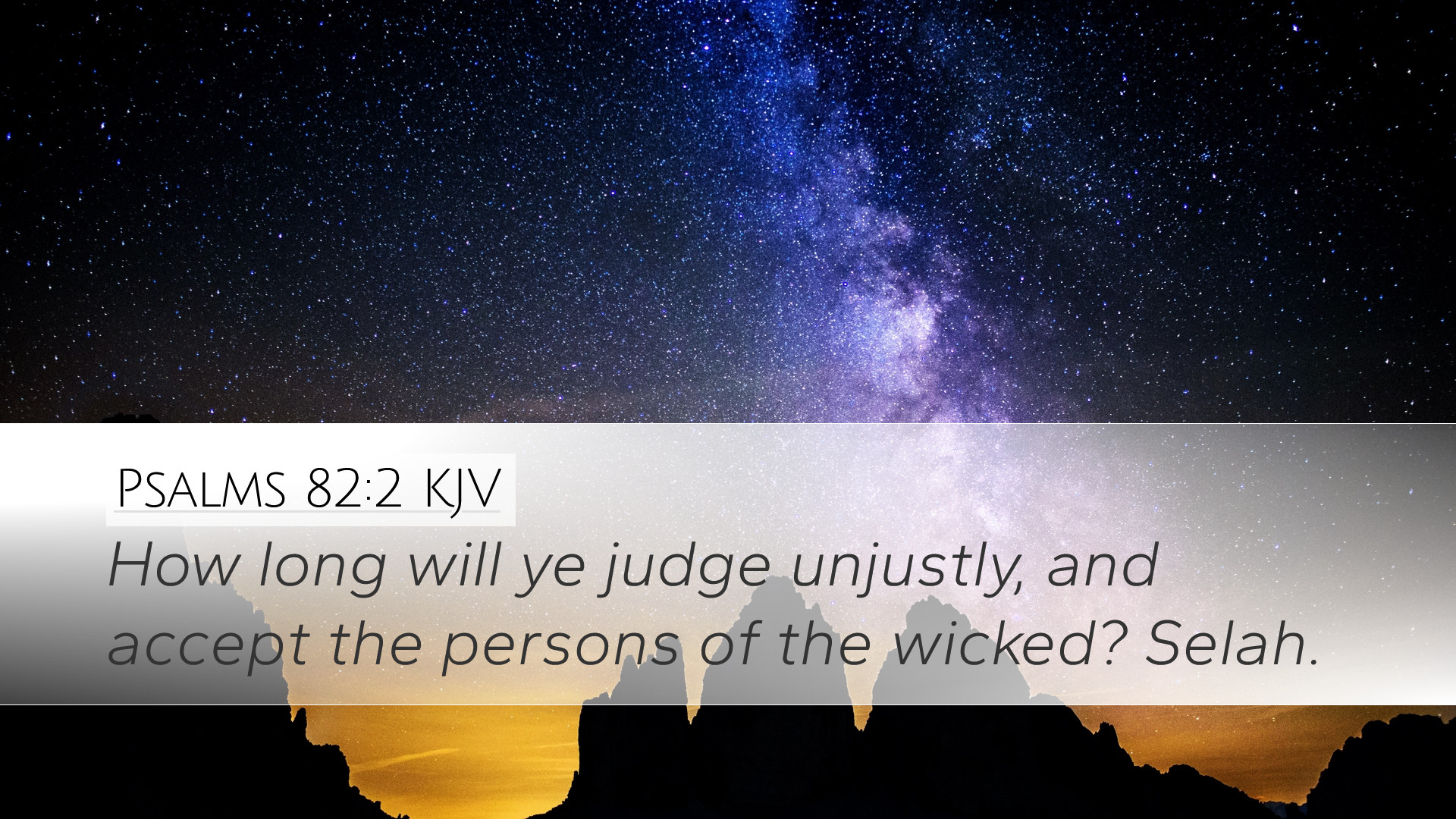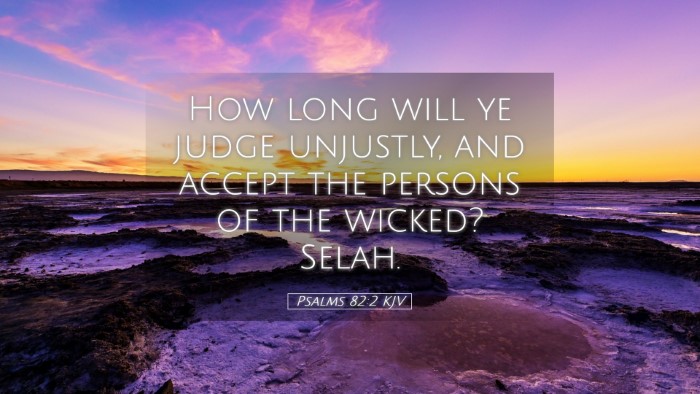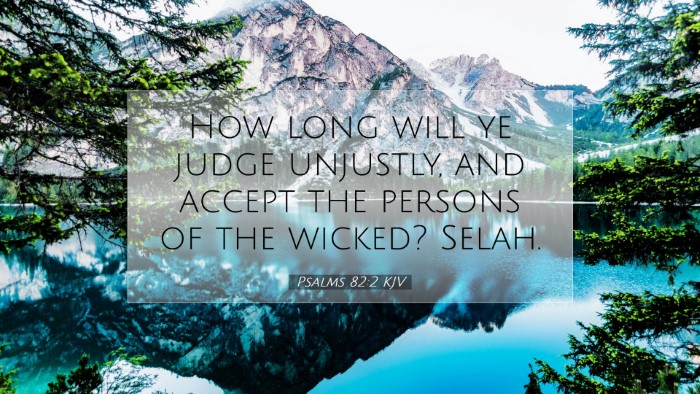Commentary on Psalms 82:2
Psalms 82:2 states: "How long will you judge unjustly and show partiality to the wicked?" This verse challenges the integrity and moral standing of judges and leaders, calling for justice and righteousness. The Psalm acts as a divine address to those in positions of authority, reminding them of their responsibilities to uphold justice.
Introduction
The 82nd Psalm presents a profound meditation on the nature of justice and divine authority. It is set in a context where God stands in the congregation of the mighty and judges the gods, a term interpreted as those in power on earth. Notably, this psalm not only reflects on the role of human judges but also underscores the divine expectations of justice.
Theological Implications
The verse raises significant theological implications concerning divine judgment and societal ethics. The idea that God Himself stands in judgment over those who govern is a sobering reminder of the accountability that comes with leadership.
Human Authority and Divine Oversight
As noted by Matthew Henry, this verse speaks to the concept of divine oversight of human jurisdictions. The rulers and judges are seen not merely as autonomous authorities but as ministers of God, intended to reflect His justice and righteousness in society.
Call to Accountability
Albert Barnes emphasizes that the question posed in this verse serves as a call to accountability. The implication is that worldly leaders have a responsibility to govern justly. The challenge of showing partiality, particularly to the wicked, is a moral failure that invites divine scrutiny.
Contextual Analysis
Understanding the context of Psalms 82:2 is crucial for a comprehensive interpretation. The Psalm can be viewed as a communal lament, where the psalmist reflects on the failures of justice in Israel. Furthermore, Adam Clarke provides insight into the historical implications for the Israelite community, who were particularly called to maintain justice as a reflection of God's character among the nations.
Cultural and Historical Background
In ancient Israel, leaders were seen as representatives of God's authority on earth. Their decisions could lead to the flourishing or suffering of the people. Hence, the call for justice was not only a moral imperative but also a communal expectation. The psalmist uses the term "gods" to refer to these leaders, indicating their elevated status, yet simultaneously highlighting their failings.
Lessons for Modern Leaders
The lessons extracted from this verse are applicable to modern leaders and authority figures in various contexts. The expectation of justice remains paramount; leaders today are similarly tasked with ensuring fairness and equity in their decisions.
Justice as a Reflection of Divine Character
Both Henry and Barnes agree that justice functions as a reflection of God's character. Therefore, leaders must actively oppose injustice and advocate for the marginalized. The verse challenges leaders to make ethical decisions and provides a spiritual foundation for principles of governance based on righteousness.
Partisan Politics and Bias
This verse also speaks directly to the issue of bias in leadership. The call to not show partiality to the wicked is tremendously relevant in a political landscape often marked by partisan interests and corruption. The responsibility to judge justly transcends the boundaries of political affiliation, challenging leaders to prioritize ethical governance over personal gain.
Conclusion
In summary, Psalms 82:2 is a powerful text that addresses the nature of justice, the role of leaders, and the divine expectation of fairness. It serves as a reminder that all authority is ultimately accountable to God. For pastors, students, theologians, and scholars, this verse offers rich material for reflection and application in the pursuit of justice in contemporary society.
Reflection Questions
- What are the implications of this verse for my understanding of leadership and authority?
- How can I promote justice in my community based on the teachings of this Psalm?
- What specific biases might I unconsciously hold that affect my judgment of others?
- In what ways can faith leaders hold themselves and others accountable to divine standards of justice?


